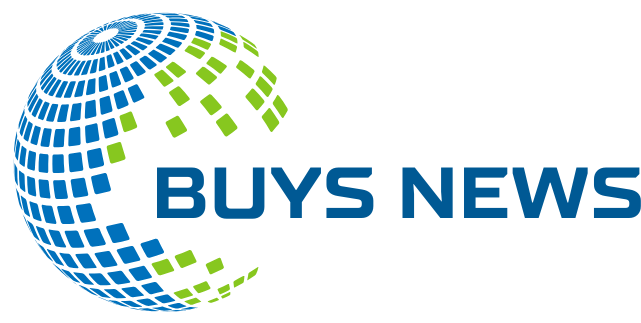Reaching financial freedom in 10 years or less is an achievable goal if you strategically utilize the right tools and knowledge. It’s essential to start by setting clear financial goals and understanding how to effectively manage your finances to ensure success. Throughout this post, we’ll explore practical strategies and insights that will guide you towards financial independence, emphasizing the importance of goal setting, investing wisely, reducing expenses, and continuous financial education.
Set Clear Financial Goals
To achieve financial freedom, it is crucial to set clear financial goals. These goals provide direction and motivation, helping you craft a detailed roadmap to your desired financial future. Define what financial freedom means for you. Is it retiring early, buying a house, or starting your own business? Whatever it is, write down specific targets, such as saving a certain amount by retirement or paying off debt by a particular date.
Break down your goals into manageable steps. Instead of aiming for a large, intimidating target, create smaller, actionable steps that are more achievable. For example, if your goal is to save $100,000 in 10 years, calculate how much you need to save monthly or yearly.
SMART Goals
Use the SMART criteria to make goals clear: Specific, Measurable, Achievable, Relevant, and Time-bound. Each goal should be well-defined. A specific goal would be, “Save $1,000 every month,” rather than, “Save some money.” This clarity helps maintain focus and track progress over time.
Regularly review and adjust your goals as needed. Life circumstances change, and your financial goals may need to adjust accordingly. Stay flexible and adapt your strategy as required to stay on track towards your larger financial objectives. Establishing clear financial goals is a fundamental step in your 10-year financial freedom journey, laying a foundation for the actions and habits needed to reach financial security.
Develop a Strategic Investment Plan

To develop a strategic investment plan, begin by evaluating your current financial situation. Understand your net worth and know where your money goes each month. This gives you a clear picture of where you stand financially.
Next, determine your risk tolerance. Ask yourself how comfortable you are with potential losses and gains. This will help you choose suitable investment options like stocks, bonds, or real estate.
Identify reliable sources for investment advice. This could be financial advisors, trusted websites, or financial news. Make sure to evaluate the credibility of these sources.
Diversification is key in reducing risks in your investment plan. Spread your investments across different asset classes and industries. This way, poor performance in one area won’t drastically affect your overall portfolio.
Review and adjust your investment plan regularly. Economic conditions and personal circumstances change over time, requiring you to adapt your strategy accordingly.
Finally, be patient and disciplined. Investments take time to grow, and staying committed to your plan is essential.
Cut Unnecessary Expenses
One effective way to accelerate your journey to financial freedom is by cutting unnecessary expenses. Begin by identifying discretionary spending areas in your budget. Look into monthly subscriptions, dining out, and luxury items that can be reduced or eliminated. Make use of budgeting apps to track and categorize your spending.
Consider adopting a minimalist approach. Prioritize experiences over material possessions, and focus on what genuinely adds value to your life. Analyze your needs versus wants by scrutinizing habitual purchases. Implementing this change can lead to significant savings over time.
Take advantage of free or low-cost alternatives for entertainment and leisure. Opt for library memberships instead of buying new books, explore local parks for outdoor activities, or host potluck dinners instead of dining at costly restaurants. These simple adjustments can boost savings without sacrificing quality of life.
Moreover, practice mindful shopping. Always make a shopping list to avoid impulse buys, and take advantage of discounts, coupons, and price comparison tools online. By doing so, you ensure that every dollar is spent intentionally, aligning with your financial goals.
Continuously Educate Yourself About Finances

In the fast-paced world of finance, staying updated is crucial for achieving financial freedom. Embrace the habit of learning and expanding your financial literacy. Consider reading books and articles from reputable financial experts who offer insights on wealth management, investment strategies, and economic trends.
Furthermore, subscribe to financial podcasts and attend seminars. Engaging with these resources can enhance your understanding, helping you make informed decisions that align with your financial goals. Join online forums or study groups where you can discuss financial topics with like-minded individuals, exchanging knowledge and tips.
Also, consider enrolling in courses. Online platforms offer a plethora of financial courses designed for various learning levels. These courses can provide you with deeper insights into areas such as budgeting, tax laws, and efficient saving techniques. Continuously upgrading your skills in finance will empower you to navigate your financial journey more effectively.
Lastly, keep a lookout for new financial technologies that could aid in managing your finances better. From apps that help track expenses to platforms that offer investment advice, technology can be a game-changer in achieving financial independence. Staying updated ensures you’re making the most of the tools available to build and protect your financial future.




 How to Make $1,000 a Month: Achieve Passive Income Now
How to Make $1,000 a Month: Achieve Passive Income Now  The Psychology Behind Stock Market Trends: Unveiling Insights
The Psychology Behind Stock Market Trends: Unveiling Insights  How to Build an Investment Portfolio with $10,000: Start Now!
How to Build an Investment Portfolio with $10,000: Start Now!